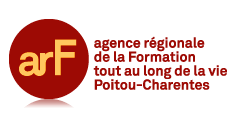Le MOOC "De l'atome à l'humain : à la racine des mots scientifiques", proposé par l'Université de Lorraine, débute le 07 août 2017 pour une 4e session ! Ce cours porte sur l’étymologie du vocabulaire scientifique et médical. Que vous soyez lycéen visant la PACES, la santé, les sciences, étudiants, ou justes intéressé par l'étymologie, ce cours est fait pour vous. Voir l'article...
Un Mooc sur le métier d'ingénieur
Rubrics as part of online MOOC peer reviews #mooc #elearning
 By Inge Ignatia de Waard. An addition to the EdTech options that I am currently organising. A rubric is a grading tool used within a course (blended or online courses) which is used to enable students as well as learners to understand what is expected of them in terms of solving an assignment or reviewing assignments from their peers. Read more...
By Inge Ignatia de Waard. An addition to the EdTech options that I am currently organising. A rubric is a grading tool used within a course (blended or online courses) which is used to enable students as well as learners to understand what is expected of them in terms of solving an assignment or reviewing assignments from their peers. Read more...
When learning analytics meet #MOOCs by @mebner #learninganalytics #liveblog
 By Inge Ignatia de Waard. Today I had the pleasure of meeting up with Martin Ebner from the TUGraz, who gave a detailed and critical overview to show how Learning Analytics can support the future MOOC-learner as well as the future MOOC-lecturer. Read more...
By Inge Ignatia de Waard. Today I had the pleasure of meeting up with Martin Ebner from the TUGraz, who gave a detailed and critical overview to show how Learning Analytics can support the future MOOC-learner as well as the future MOOC-lecturer. Read more...
Online course & MOOC video scripting guidelines #MOOC #edtech
 By Inge Ignatia de Waard. Below are some general guidelines when looking to produce an online course script that can be used to record video content (e.g. MOOC, blended learning,…). The guidelines are divided into two main sections: timing and narrative script. Read more...
By Inge Ignatia de Waard. Below are some general guidelines when looking to produce an online course script that can be used to record video content (e.g. MOOC, blended learning,…). The guidelines are divided into two main sections: timing and narrative script. Read more...
Bienvenue sur le MOOC de l'ANSSI
 Vous y trouverez l’ensemble des informations pour vous initier à la cybersécurité, approfondir vos connaissances, et ainsi agir efficacement sur la protection de vos outils numériques. Ce dispositif de formation est accessible gratuitement jusqu’au mois d’avril 2019. Le suivi intégral de ce dispositif vous fera bénéficier d’une attestation de réussite. Voir l'article...
Vous y trouverez l’ensemble des informations pour vous initier à la cybersécurité, approfondir vos connaissances, et ainsi agir efficacement sur la protection de vos outils numériques. Ce dispositif de formation est accessible gratuitement jusqu’au mois d’avril 2019. Le suivi intégral de ce dispositif vous fera bénéficier d’une attestation de réussite. Voir l'article...MOOC en Afrique : des promesses de l’ouverture aux réalités de l’appropriation
« Un jeune étudiant africain, sac en bandoulière, tenant à la main une tablette sous un soleil de plomb au milieu d’un paysage désertique ». Telle est l’image que proposait la plateforme de MOOC Coursera en 2012 sous l’onglet « À propos ». Voir l'article...
Why Haven't MOOCs Eliminated Any Professors?
 By Joshua Kim. The evidence is in. More robots equals fewer jobs.
By Joshua Kim. The evidence is in. More robots equals fewer jobs.
If MOOCs are a sort of robot, then why haven’t the MOOC robots taken the faculty jobs? MOOCs seem like the poster child for technological unemployment. More...
EdX Certificate Programs Aim to Deliver Immediate Pathways to Careers
 Techno-News Blog. Massive open online course (MOOC) provider edX launched a new line of programs that are designed to build or advance critical skills for in-demand careers like software development and data science. Professional Certificate programs “provide learners with a more immediate path to reskill or upskill quickly in order to advance their career or position themselves for a new job,” according to the announcement. More...
Techno-News Blog. Massive open online course (MOOC) provider edX launched a new line of programs that are designed to build or advance critical skills for in-demand careers like software development and data science. Professional Certificate programs “provide learners with a more immediate path to reskill or upskill quickly in order to advance their career or position themselves for a new job,” according to the announcement. More...
MOOCs Started Out Completely Free. Where Are They Now?
 Techno-News Blog. As MOOC providers focussed on finding a business model, they started putting certain aspects of the experience behind a paywall, hoping to get more people to pay. MOOCs went from free to free to audit (nevermind that the concept of auditing a class is completely foreign in most parts of the world). Free certificates were the first items to be shifted from free to pay. More...
Techno-News Blog. As MOOC providers focussed on finding a business model, they started putting certain aspects of the experience behind a paywall, hoping to get more people to pay. MOOCs went from free to free to audit (nevermind that the concept of auditing a class is completely foreign in most parts of the world). Free certificates were the first items to be shifted from free to pay. More...




/https%3A%2F%2Fprofilepics.canalblog.com%2Fprofilepics%2F1%2F0%2F1076071.jpg)